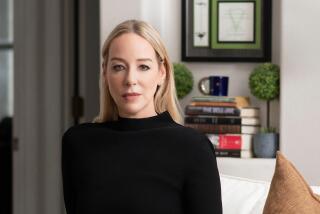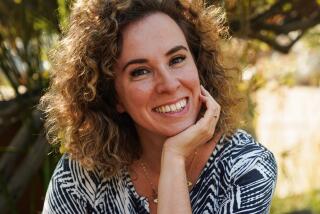Alice Miller dies at 87; psychoanalyst explored effects of child abuse
Alice Miller, a Swiss-trained psychoanalyst who won a wide American audience with provocative books about the pervasiveness of child abuse and its legacy of physical and emotional suffering, has died. She was 87.
Miller, who died April 14 at her home in Provence in southern France, had amyotrophia, a disease that causes muscle weakness and wasting, said her son, Martin.
The author of a dozen books, Miller was best known for her first endeavor, “The Drama of the Gifted Child and the Search for the True Self.” Published in the U.S. in 1981 as “Prisoners of Childhood,” it sold more than a million copies with its shocking thesis that nearly all children are abused but repress the pain and are likely to repeat the unhealthy patterns with the next generation.
“What struck me as so momentous was her depiction of the perfect power that parents have over their children and the harm that narcissistic parents can reap on their children,” said Jane Isay, who was Miller’s editor at Basic Books, which published “Prisoners of Childhood.” “So many people said this book changed their life.”
Miller was concerned about a spectrum of behaviors ranging from sexual and physical abuse — which, by her definition, included spanking and circumcision — to neglect, humiliation and other forms of emotional cruelty.
She was well into middle age when she realized that her own childhood had been scarred. The memories were liberated when she began painting, a process that brought her “face to face with the terrorism exerted by my mother,” she wrote in her 1988 book “Banished Knowledge.”
Oliver James, a leading British psychologist, called Miller “extremely important … almost as influential as R.D. Laing,” a leader of the anti-psychiatry movement whose 1960 book “The Divided Self” transformed views of mental illness. “Alice Miller,” James told the London Guardian in 2005, “changed the way people thought.”
Others disparaged her influence. “Alice Miller has been writing the same book for years, and its theme is simple: It is time to get rid of the Fourth Commandment, to honor thy father and mother,” psychologist and author Carol Tavris wrote in a 2006 Times Literary Supplement review of Miller’s “The Body Never Lies,” about the effects of bad parenting. She called Miller’s “Prisoners of Childhood” one of the bibles of the “parent-blaming, recovered-memory culture of victimization.”
Miller was born Jan. 12, 1923, in Lwow, Poland (now part of Ukraine). She had a middle-class upbringing and described her father as an unsuccessful banker and her mother as a housewife.
She told an interviewer in 1992 that Hitler’s rise to power in the 1930s colored her childhood, recalling that even as a 10-year-old she was “dumbfounded as millions of supposedly ‘civilized’ people were transformed into a blind, hate-filled mass who enthusiastically allowed a primitive, arrogant monster to lead them to murder their fellow human beings.” Later, in works such as “For Your Own Good: Hidden Cruelty in Child-Rearing and the Roots of Violence,” she argued that the murderous behavior of dictators such as Hitler and Joseph Stalin had its origins in repressed childhood horrors that urged them “unconsciously to inflict similar pain on others.”
An extremely private person, Miller was careful to share few details about her personal life with readers. But she once told Isay that when Jews in Nazi-occupied Poland were rounded up into the Warsaw ghetto, her family had her smuggled out to live with a Christian family under a false name. At night she would sneak back to the ghetto to bring food to her family but, as she told Isay, she was unable to save them.
She entered the University of Warsaw, where she studied philosophy and literature. After the war, she earned a doctorate in psychology and sociology at the University of Basel in Switzerland. She trained as a psychoanalyst in Zurich, Switzerland, and began her own practice in 1960.
Eventually she turned away from classic Freudian concepts because of Freud’s belief in the culpability of children in their own traumas and resigned from the International Psychoanalytical Assn. In 1980 she ended her practice to write books.
“It wasn’t until I wrote my books that I found out just how hostile society was toward children,” she told an interviewer in 1997. “I have come to realize that hostility toward children is to be found in countless forms, not only in death camps but throughout all levels of society and in every intellectual discipline — even in most schools of therapy.”
In addition to her son, she is survived by a daughter, Julika.
More to Read
Start your day right
Sign up for Essential California for the L.A. Times biggest news, features and recommendations in your inbox six days a week.
You may occasionally receive promotional content from the Los Angeles Times.







